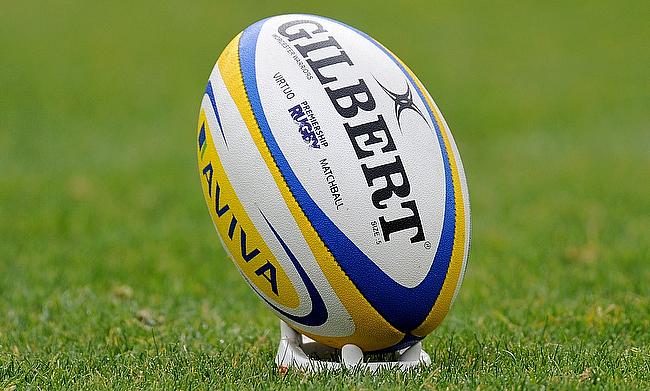Examining the role of gambling in the rugby culture
Gambling has long been associated with sports, and rugby is no exception. In fact, gambling has been a part of rugby culture for as long as the sport has existed.
From informal wagers between players to professional sports betting, the relationship between rugby and gambling is complex and multifaceted. While some argue that gambling is an integral part of the rugby experience, others are concerned about its potential adverse effects on the game, the players, and the fans.
This article will provide insights into the complex relationship between rugby and online gambling. It aims to contribute to a broader understanding of the role of gambling in sports and its impact on sports communities.
History of rugby and gambling
Rugby and gambling have a long and intertwined history. The roots of rugby can be traced back to the game of football played in England in the early 19th century, which often involved wagers between players and spectators.
In the 1820s, a variation of football known as Rugby School football emerged, and it soon became popular among schools and universities across England.
During this time, gambling was an accepted part of everyday life, and it was not uncommon for players and spectators to place bets on the outcome of matches.
As rugby grew in popularity, so too did its association with gambling. Rugby matches became the focus of wagers between players, spectators, and even entire communities.
In the late 19th and early 20th centuries, rugby began to take on a more organised form by establishing national and international competitions. As the game became more professional, so did the associated gambling.
Professional gamblers became interested in rugby, and sports betting on matches became more widespread.
However, the relationship between rugby and gambling has not always been positive. In the early 20th century, people were raising concerns about the influence of gambling on the integrity of the game. There were several instances of match-fixing, and authorities found the involvement of some players in illegal gambling activities.
In response to these concerns, rugby's governing bodies began to crack down on gambling, introducing regulations and penalties for players, coaches, and officials involved in illegal gambling activities.
While these measures have helped to curb the negative influence of gambling on rugby, the relationship between the two remains complex.
Today, rugby and gambling are still closely associated, with sports betting on matches and tournaments being popular among fans. There are reputable online casino sites that offer special codes for bets. You can benefit from the latest no deposit casino bonus codes for existing UK players by SlotsCalendar, which will help you experience the best casino thrills on the internet.
While some argue that gambling is an integral part of the rugby experience, others raise concerns about its potentially negative effects on the game and its participants.
The role of the gambling industry in rugby's growth
Rugby, a sport known for its physicality and intensity, has grown in popularity worldwide in recent years. For decades, it has been enjoyed in traditional markets such as the United Kingdom, Australia, and South Africa. Still, it has also been gaining a foothold in newer regions such as Asia and the Americas.
The growth of the sport
Increased media coverage is one of the primary factors contributing to rugby's growth.
Television networks and online streaming platforms have started broadcasting more rugby matches, making the sport more accessible to fans.
Rugby tournaments such as the Six Nations, Rugby Championship, and the Rugby World Cup have gained significant traction, drawing in large audiences worldwide.
Investment in grassroots rugby programs has also been crucial to rugby's growth. Countries like Japan, which hosted the 2019 Rugby World Cup, have invested heavily in developing the sport at the grassroots level.
In many countries, rugby is part of the curriculum in schools, allowing children to learn and play the sport from an early age.
Rugby academies are also being established to nurture young talent and develop the sport.
Furthermore, rugby has been able to appeal to a broader audience through technology.
The development of mobile apps and social media platforms has helped increase fan engagement. Rugby organisations have also started using data analysis and other forms of technology to improve the sport, making it more exciting for fans to watch.
The gambling industry and its role
The gambling industry has played a significant role in rugby's growth, increasing interest in matches and providing financial support to the sport.
One way in which the industry has contributed to rugby's growth is through bookmakers offering odds and betting markets. This has helped to generate interest in matches and tournaments, as fans can now bet on the outcome of games.
The increased engagement from fans has also led to higher television ratings and attendance at live matches, which has helped generate more revenue for the sport and more positive effects.
Moreover, gambling companies' sponsorship and advertising revenue have provided a significant funding source for rugby.
Many rugby teams, leagues, and tournaments have secured sponsorships from significant gambling companies, which have provided financial support for their operations. This funding has enabled teams to invest in facilities, players, and coaching staff and has also created new opportunities for fans, such as fan experiences and hospitality packages.
Furthermore, the partnership between rugby and the gambling industry has provided an opportunity for both parties to promote responsible gambling practices.
Many gambling companies have taken steps to promote responsible gambling and raise awareness of the potential risks associated with gambling. Rugby organisations have also taken steps to ensure that their partnership with the gambling industry does not promote or condone irresponsible gambling practices.
The impact of rugby gambling on sports communities
The impact of rugby gambling on sports communities can be positive and negative. Thus it is crucial to address any potential risks and ensure that the partnership between rugby and the gambling industry promotes responsible gambling practices and does not negatively impact the sport and its fans.
Below, we will present some of these effects that experts observed over the years on sports communities.
Positive Impact:
- Increased interest and engagement in rugby matches due to the availability of betting markets
- Provides financial support to rugby teams, leagues, and tournaments through sponsorships and advertising revenue from gambling companies
- Helps to generate revenue for the sport through increased television ratings and live match attendance
- Can create new opportunities for fans, such as fan experiences and hospitality packages, due to the funding provided by gambling companies
- Potential for match-fixing, which could damage the integrity of the sport and its reputation
- Potential for problem gambling and the associated risks, such as financial difficulties and addiction, among fans
- This could lead to a focus on the gambling aspect of the sport rather than the sport itself
- This can create ethical concerns and criticisms regarding the partnership between rugby and the gambling industry
Negative Impact:
Conclusion
Ultimately, as the evidence indicates, there is no doubt that gambling has contributed significantly to the growth and development of rugby. It provides a lucrative opportunity for players, spectators, and match organisers to make some money and brings unparalleled excitement and enthusiasm to the game.
Always remember that betting can be both addictive and dangerous if done without proper care and consideration. By being sensible about your actions and aware of your limits, you can help protect yourself by playing responsibly - something everyone should always remember!


